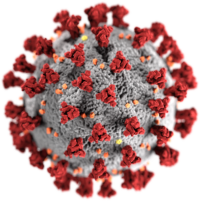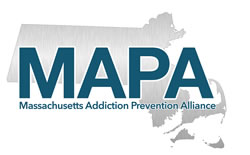As concerns about coronavirus grip the nation, there’s been a particular emphasis on protecting the elderly and those with underlying conditions that may worsen its effects and outcomes. But as new data comes in, it is becoming clear that COVID-19 is also more deadly for those who smoke or vape tobacco or marijuana, and that a substance use disorder (SUD) puts an individual at heightened risk for the coronavirus.
Science to support this as a potential public health issue is emerging. As a contagious illness, COVID-19 is likely to be a long-lasting health concern for our communities, and due to the increased risk to those who vape, smoke or have an S UD, protecting our youth and families from the adverse effects of alcohol and drug use must be a part of the community response to the pandemic. For this reason, MAPA’s work preventing youth drug use and addiction–including education on SUDs and COVID-19 outcomes– is more important than ever.
UD, protecting our youth and families from the adverse effects of alcohol and drug use must be a part of the community response to the pandemic. For this reason, MAPA’s work preventing youth drug use and addiction–including education on SUDs and COVID-19 outcomes– is more important than ever.
Compromised lung function or lung disease may worsen outcomes
Coronavirus attacks the lungs, and those with underlying issues such as diabetes, cancer and respiratory conditions are considered at higher risk for death and serious illness.
“It would be reasonable to think that any condition that potentially affects the lungs, be it chronic or acute effects from such behavior such as smoking or vaping, regardless of the ingredients inhaled, could play a role in making someone more susceptible to complications from the disease,” said American Lung Association’s Chief Medical Officer Albert Rizzo, M.D., in an article on the ALA’s website.
In a recent study published by the New England Journal of Medicine, people who smoke were 2.4 times more likely to have severe symptoms from COVID-19 compared to those who did not smoke. The CDC has identified smokers as a high-risk group for COVID-19.
The National Institute for Drug Abuse raised the alarm on a potential link between SUDs and COVID-19 outcomes, stating that coronavirus could be “an especially serious threat to those who smoke tobacco or marijuana or who vape. People with opioid abuse disorder (OUD) and methamphetamine use disorder may also be vulnerable due to those drugs’ effects on respiratory and pulmonary health.”
“We know that the odds of disease progression, including death, is about 12 to 14 times higher among people with smoking or vaping history,” Dr. Nathan Do, a pulmonologist with AdventHealth in Tampa, FL told Healthline. “However, this does not place them at the top of any list as far as treatment is concerned and is not part of the screening for COVID-19 [at the time of this interview].”
NIDA identified “emerging evidence [to suggest] that exposure to aerosols from e-cigarettes harms the cells of the lung and diminishes the ability to respond to infection.” OUD or high doses of medical opioids also present respiratory health challenges. Opioids act in the brainstem to slow breathing, potentially causing a harmful decrease of oxygen in the blood. In addition, diminished lung capacity due to COVID-19 could also accelerate death risk, as we know that chronic respiratory disease can increase mortality in opioid users. A history of methamphetamine use may also escalate the lethality of the virus due to constricting the blood vessels, which contributes to pulmonary damage and pulmonary infection.
Unique challenges for those with a SUD in transmission & accessing treatment
Aside from the underlying conditions that may make those with SUDs more susceptible to severe outcomes to COVID-19, there are a number of social factors at play. “Individuals with substance use disorder are more likely to experience homelessness or incarceration than those in the general population, and those circumstances pose unique challenges regarding transmission of the virus that causes COVID-19,” said the NID in its report.
NIDA also identified risks associated with SUDs including decreased access to healthcare, housing insecurity and greater likelihood of incarceration. “Limited access to health care places people with addiction at greater risk for many illnesses, but if hospitals and clinics are pushed to their capacity, it could be people with addiction–who are already stigmatized and underserved by the healthcare system–will experience even greater barriers to treatment for COVID-19.”
Continuing MAPA’s work during the pandemic
As public health officials focus on tackling the COVID-19 outbreak in our communities, MAPA remains focused on ensuring that education, research and policy work around substance misuse continues in an effort to protect our communities from its adverse effects, including those related to COVID-19.
Currently, The Josephine and Lester Hensley Family Trust is offering a 100% gift match for any donations to MAPA up to $10,000. This means that any donation you make will have double the impact–a donation of $25 will net $50 for MAPA, $250 nets $500 and $1,000 nets $2,000.
Donate today to ensure that your gift is doubled and to help us as we continue in our work to protect Massachusetts youth and communities from addiction and the continued and emerging outcomes of alcohol and drug abuse.
